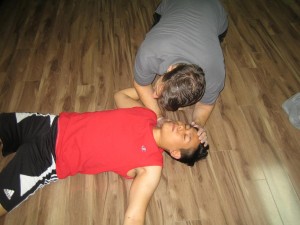Due to the popularity of shows that revolve around hospitals and actors doing CPR such as “E.R.” and “Chicago Hope”, the number of people who have become interested in practising cardiopulmonary resuscitation techniques have increased. This means that the concept of saving lives have piqued the interest of many. However, this positive effect has its downsides, one of which includes the dissemination of false information about this life-saving technique. Here are some of these information.
When done incorrectly, CPR does not pose serious problems

According to a handbook that was published by the Kaiser Permanent Healthwise, a non-profit organization which aims to help people make better decisions regarding their health and the health of others, improper CPR can cause serious injury. This supports the findings of a study that was conducted in Broward County Medical Examiner’s Office in Fort Lauderdale, Florida which showed that CPR-related injuries can cause fatality when performed to children. This is why it is wise to invest in AHA-accredited CPR trainings and courses to ensure that these serious problems can be avoided.
Timing is not important
In TV land, patients almost always bounce back to life once CPR is done regardless of the time that it was performed. In real life, cardiopulmonary resuscitation should be performed immediately. Aside from preventing patient fatality, administering this first-aid technique immediately can also prevent severe injuries. Not performing CPR immediately would increase the time that oxygen and blood is not flowing properly throughout the body. This can cause permanent damage to several organs in the body which can cause the patient to turn into a vegetative state or a permanent coma.
CPR is only applicable for people who have incurred injuries due to accidents
Most of the time, doctors on TV perform CPR on patients who are not breathing or those who do not have a heartbeat due to accidents. In real life, most of the patients who need cardiopulmonary resuscitation are patients who have suffered a cardiac arrest or other heart conditions. By knowing this vital piece of information, bystanders and other concerned citizens will realize that performing CPR on patients who still have a heartbeat can be fatal.
Aside from these misconceptions, TV shows are also notorious for showing inappropriate CPR techniques that can cause patient fatality. This is why it is better to attend an accredited seminar or course on cardiopulmonary resuscitation to ensure that Good Samaritans do more good than harm.
